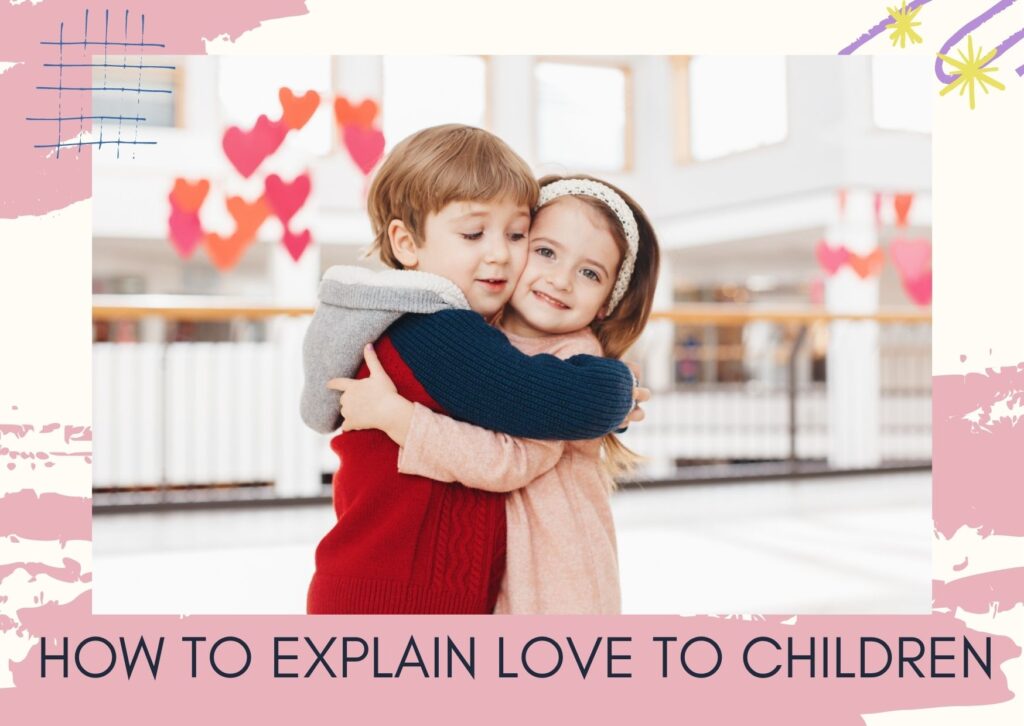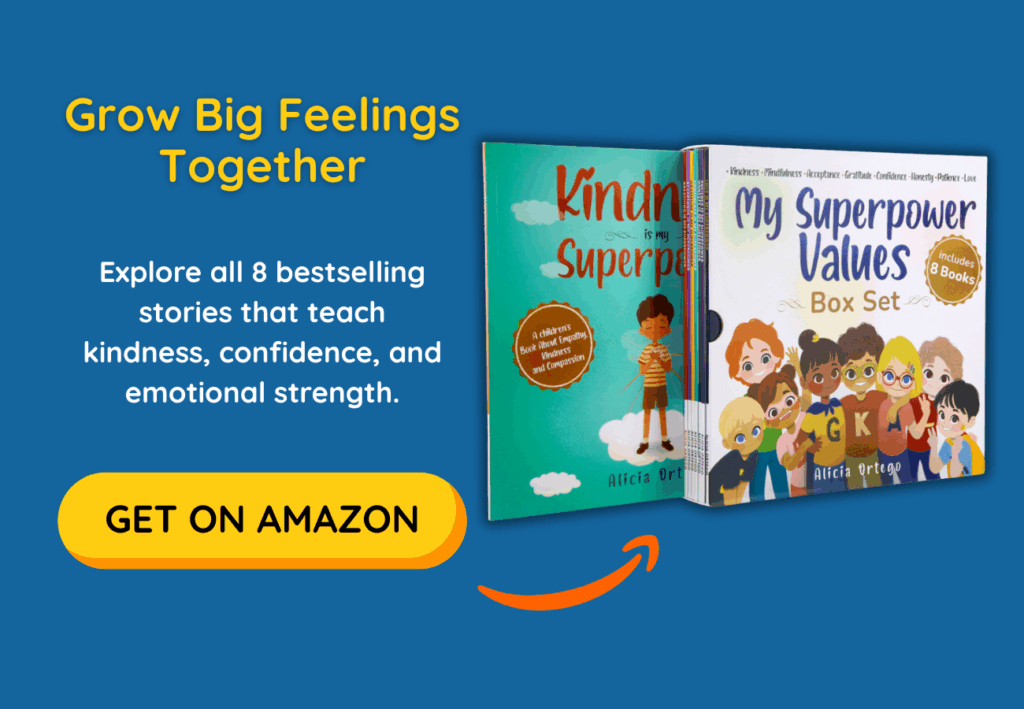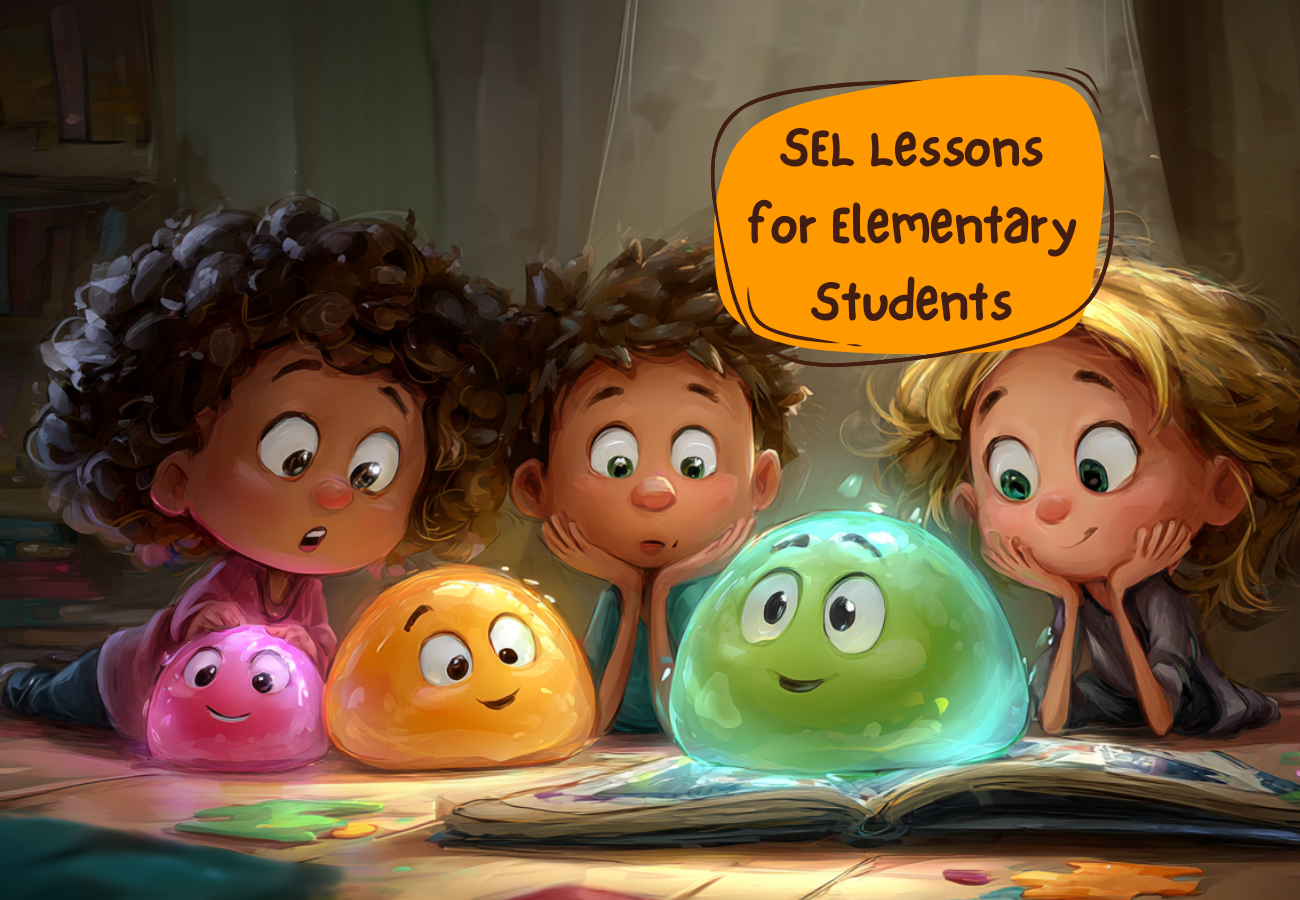How to Explain Love to Little Children

Feelings are hard to explain because children are either too young to have them, or they just cannot realize them. Parents aren’t often ready to meet their kids’ curiosity. Try asking yourself what love is. Is it easy to answer? I suppose no. Then imagine how confusing the thoughts of a 4-year-old are.
The Reality of Love
According to the article in Psychology Today journal, kids learn what love is step by step. At 3-4, they associate it with such notions as hugs, candies, pets, or parents. At 5 most children have more full answers such as “everything that is nice”. At 6, they can describe feelings in several sentences or at least phrases. You see, kids` definition of love varies significantly, though, the age gap is only a year or two.
Because young children understand love through actions, stories can be a powerful teaching tool. Books like Kindness is My Superpower show love in action — through helping, caring, sharing, and noticing others’ feelings in everyday situations children recognize.
It turns out that children instill different meanings in the love. But it always has a material expression:
- subjects (candies, toys);
- human beings (mom, dad);
- activities (going for a walk, hugging, helping).
All these things are the triggers that provoke pleasant feelings. Children can feel them. So, when they feel love, they are in a good spirit, relaxed, and content. The chain is too intricate to understand at such a young age. But you can provide examples of the triggers to explain love to your little one.

Love Doesn’t Have the Same Shade
When explaining what love is to kids, you can use the following definition. “Love is a positive attitude towards someone or something. It means that you like it. And you enjoy playing, communicating, or doing something else with a person or thing”. Tell it using some examples. “Do you like swimming in the sea? Then you like the sea. Do you enjoy playing with your father or just talking with him? Do you miss him when he’s away for a long time? Then you love your dad. Finally, if you enjoy milk porridge or bananas then you love it (compared to other products).”
Yet, here`s a tricky moment. How to distinguish different kinds of love? How to explain the love for parents, friends, and the love for Lego or other hobbies? Well, you can compare them by asking some leading questions. “Can you do without a person or an object?” Your little ones are more likely to agree that they cannot do without their parents, but they’re more likely to give up Lego. After all, there are many other toys.
The next difference you should pay attention to is the efforts one makes. For example, if you like playing with dolls, you just want to do it frequently. If you like other people or even animals, you should do something good for them. Tell your kids that when they do something good for other people, they express love. And, vise versa, when people do something good for you (a kid), that means that they love you too.
Look for Love Everywhere
What is love for kids isn’t a question to answer within the space of one day. Recall the topic from time to time to demonstrate some examples of love. Pay attention to it in the cartoons you watch with your child. Give an example of a family or other people who share the love with close ones. Nevertheless, first of all, provide your own example. Mom and dad should live in harmony, forgive each other and respect their best features. Also, show your love to your children whenever possible. In Parental Warmth and Flourishing in Mid-life research scientists prove that the more love kids receive, the better the quality of their adult life is.
Show by the example of your own family that love isn’t only about getting pleasure. If you love someone you are ready to give a helping hand while foresaking your personal desires. In general, love is also about affection, care, sympathy, support, etc.

How to Explain Love to Kids: Simple Tips
- Show It First. It works brilliantly for toddlers and preschoolers. Hug your little ones, kiss them and tell them that you love him. That’s what love looks like. They`ll remember it and associate the term love with such actions.
- Take Care of Others. You may start with animals. Tell your little ones that homeless cats or dogs are very hungry. Feed them and tell children that it’s the way to show love. Plus, good deeds provoke some other positive feelings which are important for meeting kids` emotional needs.
- Use Metaphors. You can compare love with something pleasant. Say that it makes you feel as comfortable as under a blanket or the sun rays.
- Tell Them Stories about Love. Read fairy tales that teach kids about love. Or, find out together the ways your kid’s favorite character reveals his love to others. Creative parents can come up with their own fairy tales. You may tell your kids that you have written a story for them because you love him. That’s one more visible form of love. Tell a story about Saint Valentines. This would also be a coll Valentine’s Day activity.
- Love Yourself. That’s a part of being a positive role model for your kids. Tell your children that they should love not only other people but themselves too. A person who doesn’t like himself cannot be happy and have all chances to struggle with body image. Plus, such people may have issues with self-acceptance.
- Ask Them to Detect Love. After you have shown and told your son or daughter what love is, ask them to find at least 5 examples of love a day. Help them if they have difficulties.
Conclusion
Kids` definition of love is always chaotic and abstract. If children grasp the very idea, they can develop their own understanding of the concept. You ought to constantly provide new examples of it. The kid will be able to put it all together and finally recognize what love really is.That
More articles

The Best SEL Picture Books for Kids: Top Social Emotional Learning Books for Every Classroom
Social-Emotional Learning (SEL) is most powerful when children can see feelings, empathy, and real-world challenges represented in stories. Using SEL picture books during read-aloud time is one of the most effective ways to nurture emotional intelligence, communication skills, and self-awareness in young learners. Whether you’re a teacher, parent, or school counselor, choosing the right social […]

SEL Lessons for Elementary Students (Free Guide)
Social-Emotional Learning (SEL) has become an essential part of supporting the whole child in today’s classrooms. High-quality SEL lessons for elementary students help young learners build confidence, manage emotions, strengthen relationships, and develop empathy. Whether you’re a teacher, counselor, or homeschooling parent, finding practical and free SEL lessons for elementary grades can be a challenge. […]

50+ Christmas Riddles for Kids (With Answers!)
Fun, Easy & Printable Holiday Brain Teasers Are you looking for Christmas riddles for kids that are fun, silly, and totally holiday-approved? You’re in the right place!This collection includes funny Christmas riddles for kids, classic Christmas brain teasers, and a big list of Christmas riddles for kids with answers—perfect for teachers, parents, and holiday party […]



